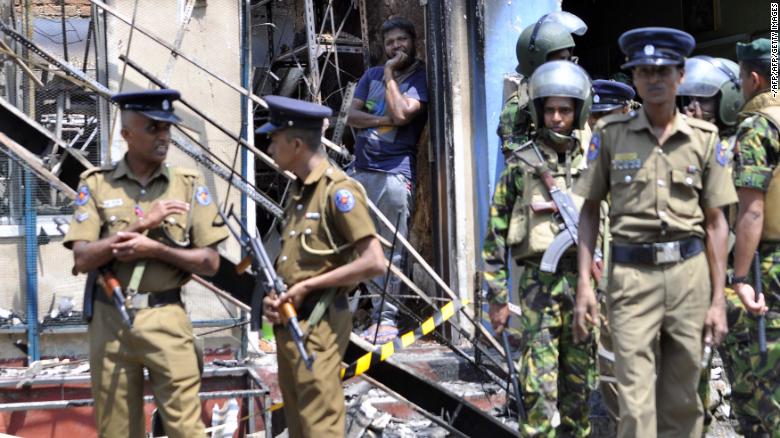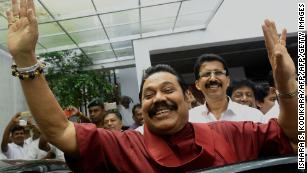Sri Lanka declares state of emergency in wake of communal violence
New Delhi (CNN)A state of emergency has been imposed in Sri Lanka for the first time since the civil war following days of communal violence between the island's Sinhalese and Muslim communities.
The special measures, enacted by the government Tuesday, will see soldiers deployed across the island for an initial 10-day period in a bid to prevent the unrest from spreading.
Violence has so far centered in and around the city of Kandy, located in the island's Central Province, where the death of a Sinhalese Buddhist youth on March 4, allegedly at the hands of a group of Muslim men, has sparked riots and arson attacks on Muslim businesses and mosques.
Sinhalese Buddhists make up about 75% of the population in Kandy.
On Tuesday morning, the body of a 28-year-old Muslim man was pulled from the burned-out wreckage of a house set on fire the previous day by Sinhalese Buddhists in Aluthwatte, some 35 kilometers (21.7 miles) north west of Kandy.
Images shared on social media show widespread damage to Muslim areas of Kandy, with stores and businesses destroyed and buildings vandalized.
"We want to make sure the communal violence doesn't spread all over Sri Lanka. We have to think about all the communities in the country. That is why the government imposed the state of emergency in the country to control the situation," Dayasiri Jayasekara, a government spokesperson, told CNN.
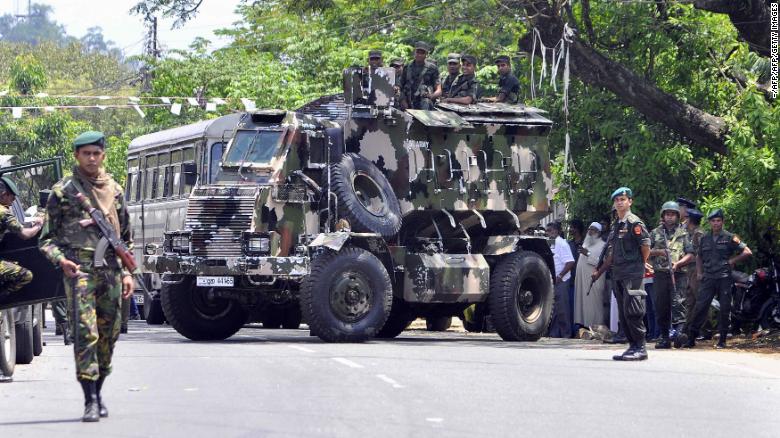
Sri Lankan police commandos on the streets of Pallekele, a suburb of Kandy, on March 6, 2018.
In Kandy, a strict curfew remains in place in the most volatile areas of the city. Extra troops and additional police have also been deployed, according to Jayasekara.
The city, the country's second largest, is an important religious center for Buddhists, and is home to numerous monasteries and temple complexes.
The Sri Lankan Prime Minister, Ranil Wickremesinghe, condemned the "racist and violent acts" in Kandy and promised to "take further action."
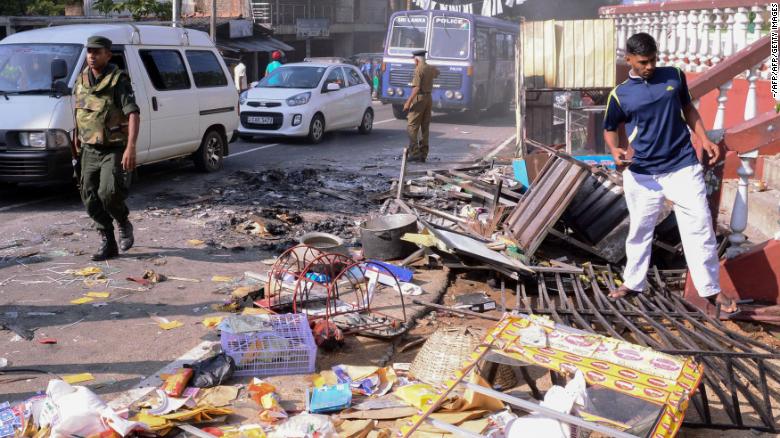
Debris from a damaged shop in the city of Kandy on March 6, 2018.
Violence triggered
The violence in Kandy is understood to have been triggered by an isolated incident on March 4, when a taxi carrying four Muslim men collided with a van driven by a young Buddhist man, according to local police.
The Buddhist man was assaulted with an iron bar and succumbed to his injuries in hospital, police confirmed.
The four Muslim men have since been arrested and remain in police custody.
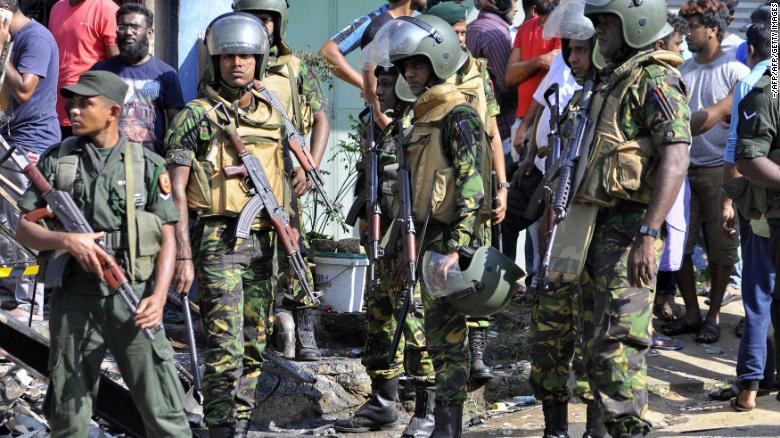
Sri Lankan police commandos patrol the streets of Pallekele, a suburb of Kandy, on March 6, 2018.
A government statement released Monday "strongly and unequivocally" condemned the violence and denounced attempts to incite violence online.
"The hate and mischievous misinformation campaigns carried out by some, especially via social media, targeting the Muslim community ... with the clear objective of creating disharmony among communities and inciting violence," read the statement.
Sri Lanka government in crisis after comeback of ex-leader
Concerns about Buddhist radicalism have been on the rise in Sri Lanka, where a monk-led Buddhist nationalist movement has been blamed for drumming up deadly mob violence against minority Muslim groups.
Tensions between Muslim groups, who make up less than 10% of the overall population, and the majority Sinhalese Buddhist community have escalated since the end of the civil war in May 2009.
In 2014, violence directed against Muslim minority groups broke out in the southwestern town of Aluthgama, following a rally by hardline Buddhist nationalist monks, resulting in the death of at least three Muslims.
Sugam Pokharel and Iqbal Athas contributed to this report.
News Courtesy: www.cnn.com

